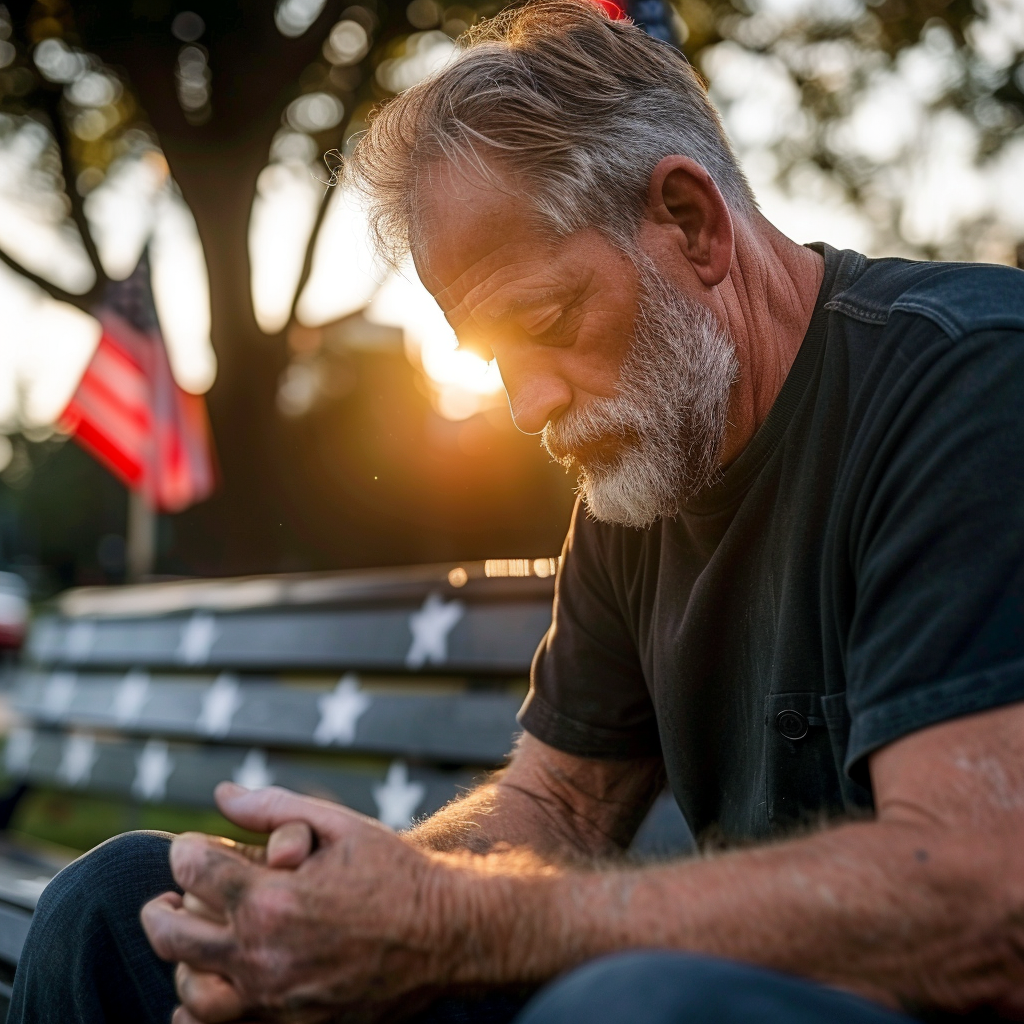Imagine feeling trapped in past trauma’s grip even when you’re safe—a reality for thousands in Wake County living with PTSD. Whether it stems from combat, accidents, or personal loss, Post Traumatic Stress Disorder can cast a shadow over your thoughts, relationships, and sense of self.
At Wake Counseling, our team of PTSD counseling mental health professionals combine proven, trauma‑focused therapies with empathy and compassion to help you move toward lasting healing and resilience.
Table of Contents
What is PTSD?

Post‑Traumatic Stress Disorder (PTSD) is a mental health condition that develops after experiencing or witnessing a traumatic event. These mental health problems may stem from military combat, a serious accident, a natural disaster, childhood abuse, sexual abuse, or other traumatic experiences. Unlike normal stress reactions that fade over time, PTSD symptoms persist for more than a month and significantly interfere with daily life.
While anyone can develop PTSD after trauma, certain experiences carry higher risk—combat exposure, sexual assault, childhood neglect, and life‑threatening accidents top the list. Nationally, about 7–8% of adults will experience PTSD in their lifetime, with higher rates among veterans and first responders.
With Wake County’s population of over 1.2 million, thousands of residents could be living with untreated PTSD in their day to day lives.
Recognizing PTSD Symptoms
Recognizing the physical symptoms and ongoing negative emotions related to PTSD is crucial. Left untreated, post traumatic stress disorder can contribute to depression, substance abuse, chronic pain, and other mental health problems.
Here are some of the common symptoms of PTSD mental disorders:

- Recurring memories of the traumatic event
- Vivid flashbacks that feel like reliving the trauma
- Frightening dreams
- Sudden emotional or physical reactions (heart racing, sweating, rapid breathing) when reminded of the trauma
- Persistent, intrusive, negative thoughts that are hard to control
- Feeling emotionally numb
- Suicidal thoughts
- Steering clear of people, places, or activities that trigger reminders
- Refusing to talk about the trauma or your feelings
- Difficulty experiencing positive emotions
- Avoiding thoughts, conversations, or situations related to the single traumatic event
- Memory gaps about key aspects of the traumatic experience
- Persistent feelings of guilt, shame, or worthlessness
- Negative beliefs about yourself, others, or the world
- Loss of interest in once‑enjoyable activities
- Feelings of detachment or estrangement from loved ones
- Difficulty experiencing happiness or hope
- Hypervigilance (constantly “on guard”)
- Exaggerated startle response (jumpiness)
- Irritability, anger outbursts, or aggressive behavior
- Trouble sleeping (insomnia, restless sleep)
- Difficulty concentrating or staying focused
- Chronic muscle tension, headaches, or gastrointestinal issues
It’s normal to feel distressed after a traumatic event, but acute stress reactions typically subside within a month. If you find it hard to manage symptoms and they persist beyond 30 days or significantly impair daily functioning, a PTSD diagnosis from a mental health professional may be warranted.
The Impact of Post Traumatic Stress Disorder on Daily Life
PTSD doesn’t just linger in the mind—it seeps into every corner of life, reshaping emotions, relationships, work, and even physical health. Understanding its broad effects of PTSD is the first step toward finding relief and reclaiming a sense of normalcy.
Personal Effects
PTSD can trigger persistent anxiety, depression, guilt, and shame, making it difficult to experience joy or feel safe—even in familiar environments. Cognitively, the effects of PTSD extend to memory lapses, difficulty concentrating, and constant rumination. Physically, chronic stress may manifest as headaches, digestive issues, muscle tension, and sleep disturbances that compound overall fatigue and discomfort.
Interpersonal and Social Effects
The effects of PTSD can strain even someone's closest relationships. Loved ones may feel shut out by avoidance behaviors or become exhausted by mood swings and irritability. Social withdrawal is common, as fear of judgment or triggering situations leads many to isolate themselves—eroding vital support networks of friends and family members when they’re needed most.
Professional and Academic Effects
Concentration problems, hyper-vigilance, and unpredictable emotional responses can undermine job performance, leading to absenteeism, missed promotions, or even job loss. Students with PTSD may experience declining grades, difficulty participating in class, and challenges meeting deadlines—limiting educational advancement and future opportunities.
Who’s Most at Risk of Developing PTSD?
While anyone can meet the diagnostic criteria of PTSD after the significant impact of a traumatic event, certain groups face significantly higher risk.
Veterans and First Responders
Military veterans experience PTSD at rates two to three times higher than the general population, with studies showing 10–20% of post‑9/11 veterans affected. First responders such as police officers, firefighters, and EMTs similarly face repeated exposure to life‑threatening incidents, placing up to 30% at risk for PTSD symptoms.
Survivors of Domestic Violence and Assault
Survivors of intimate partner violence, physical or sexual assault, or other interpersonal traumas have some of the highest PTSD rates. Research finds over 50% of sexual assault survivors develop symptoms of PTSD, including anxiety disorders and other mental health conditions.
Young Adults and Children Exposed to Trauma
Roughly 5–15% of children who endure child abuse, neglect, or community violence go on to develop PTSD. Adverse childhood experiences, including household dysfunction and exposure to violence, put children at heightened long‑term risk of developing PTSD.

Additional Risk Factors
Repeated or prolonged trauma, lack of social support, preexisting anxiety or depression, and family history of mental illness all raise PTSD vulnerability. Recognizing these risks early empowers individuals and loved ones to seek timely, targeted care, which is a cornerstone of Wake Counseling’s approach to our mental health services.
Evidence‑Based PTSD Treatments
Effective PTSD recovery hinges on therapies backed by rigorous research. Below are the five cornerstone treatments of PTSD, each proven to reduce symptoms, rebuild resilience, and restore a sense of safety for people suffering.
TF‑CBT helps you identify and challenge unhelpful thoughts tied to trauma, replacing them with healthier perspectives. Delivered over several weekly sessions, this treatment option consistently shows large reductions in PTSD symptoms and improvements in mood and daily functioning.
EMDR uses guided eye movements or other bilateral stimulation to help your brain process traumatic memories without retraumatization. Extensive studies demonstrate EMDR’s effectiveness in rapidly decreasing distress, often requiring fewer sessions than other treatment options.
This treatment gently guides you to face trauma‑related thoughts, feelings, and safe but avoided situations in a controlled environment. By gradually confronting fear triggers, prolonged exposure rewires conditioned responses, with a majority of participants reporting significant symptom relief.
Selective serotonin reuptake inhibitors (SSRIs) like sertraline and paroxetine are FDA‑approved first‑line medications for PTSD, reducing anxiety and improving sleep. For those with persistent PTSD symptoms, adjunctive options, like prazosin for nightmares, can enhance therapeutic gains when combined with psychotherapy.
Sharing experiences in a safe, supportive group setting fosters connection and reduces isolation, which are critical antidotes to PTSD’s social withdrawal. Research shows that support group formats can be as effective as individual one-on-one therapy for many. Group therapy provides sufferers with mutual encouragement, shared emotional support, and practical coping strategies.
Take the Next Step Toward Healing with PTSD Treatment
You don’t have to navigate PTSD alone. Help is available and recovery is within reach. If you or a loved one is suffering in silence, reach out to Wake Counseling today to schedule an in-person or virtual therapy consultation.
Take the first step toward reclaiming peace, purpose, and a brighter tomorrow by calling us at [phone] or filling out our contact form to get started.

